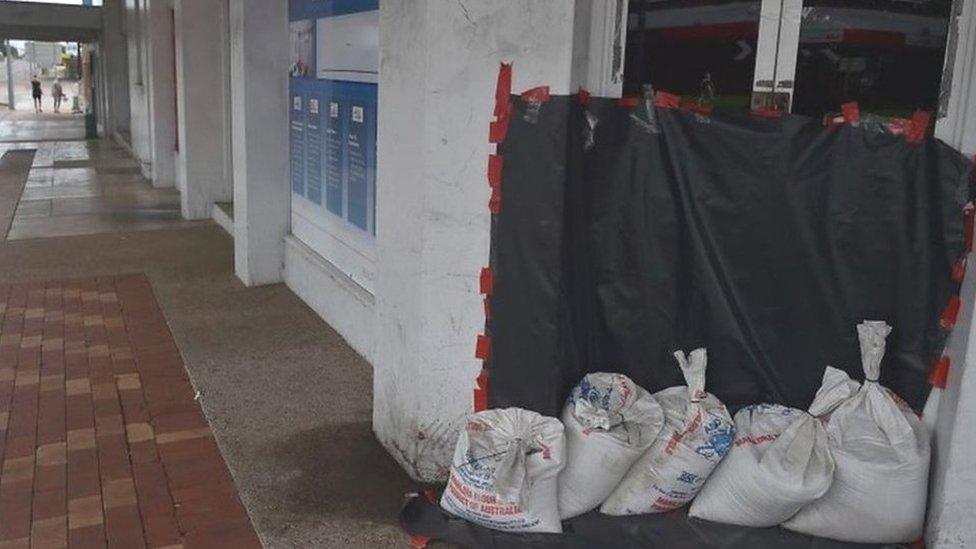Cyclone Debbie: Queensland braced for dangerous floods
- Published
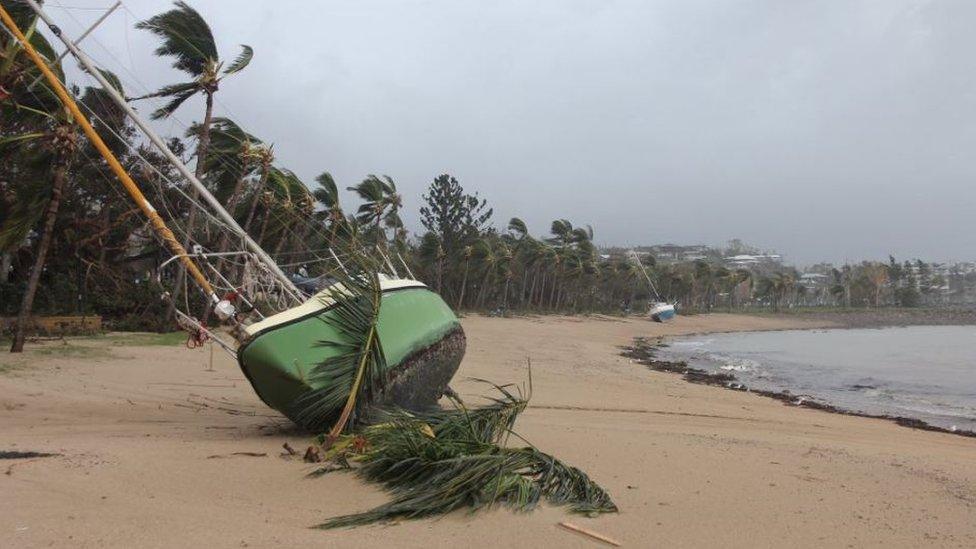
A yacht stranded at Airlie Beach, in Queensland's Whitsunday region
A 1,300km (800 miles) stretch of Australia's north-east coast is at dangerous risk of flooding after a powerful cyclone, authorities warn.
Cyclone Debbie has caused major damage, torrential rain and power cuts to tens of thousands of homes.
Australian PM Malcolm Turnbull has activated a disaster response plan.
With up to 250mm of rain forecast on Wednesday, authorities have pleaded with people to stay off roads to avoid being stranded in floodwaters.
"We've already had two instances of people who were caught in a vehicle," said Queensland Fire and Emergency Services Commissioner Katarina Carroll, adding flood rescues were now her "biggest concern".
Her warning was reiterated by Mr Turnbull, who said nature had "flung her worst" at Queensland.
Cyclone Debbie made landfall between Bowen and Airlie Beach as a category four storm, whipping gusts of up to 263km/h (163mph), and is now moving inland as a tropical low storm.
Fears of more injuries
Queensland Premier Annastacia Palaszczuk said three people had been confirmed injured, but that number could rise.
"For many people this morning, they are waking up and they are seeing the devastation that has happened in their communities," Ms Palaszczuk told reporters.
Footage shows 'monster' cyclone hitting
She urged insurance companies to "treat people with respect" following the disaster, saying 63,000 homes were without power.
Mr Palaszczuk also expressed concerns that injured people were unable to contact emergency services.

The next phase - BBC's Hywel Griffith, Ayr
The troops have arrived, the helicopters are overhead and Queensland has swung into full recovery mode.
At Ayr Fire Station, I spoke to two emergency workers who were packing up their kits and waiting to be deployed. They expect to be airlifted to one of the remote towns cut off by the storm.
When they get there, they'll knock on doors and check on people - provided of course that the doors have not blown away.
Another fireman explained how he was itching to get out and help, even if just to give a comforting hug to someone who might be shell-shocked by the cyclone.
Even in a massive emergency operation like this, it is those small gestures that make a difference.

Queensland Deputy Police Commissioner Steve Gollschewski said the worst-hit towns included Bowen, Airlie Beach, Proserpine and Collinsville.
"Those areas and the Whitsunday Islands remain difficult for us to contact and to get into," he said.
The Australian Defence Force has been despatched in Queensland to begin public infrastructure repairs.
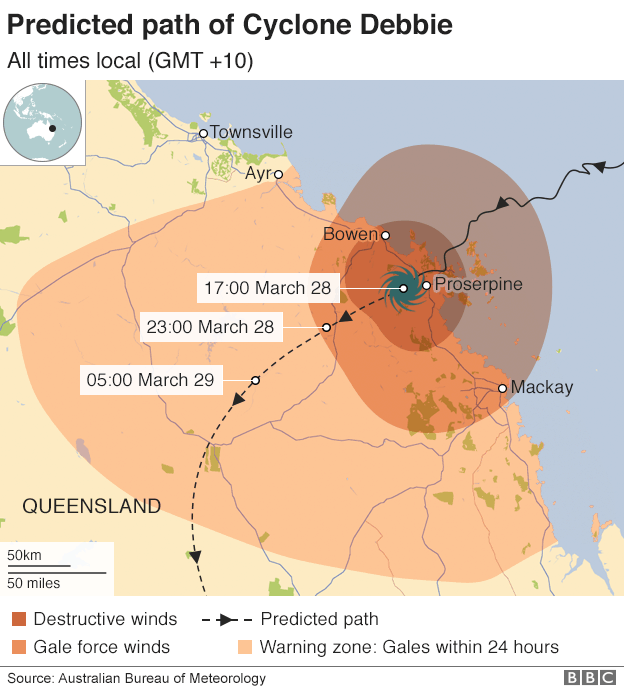
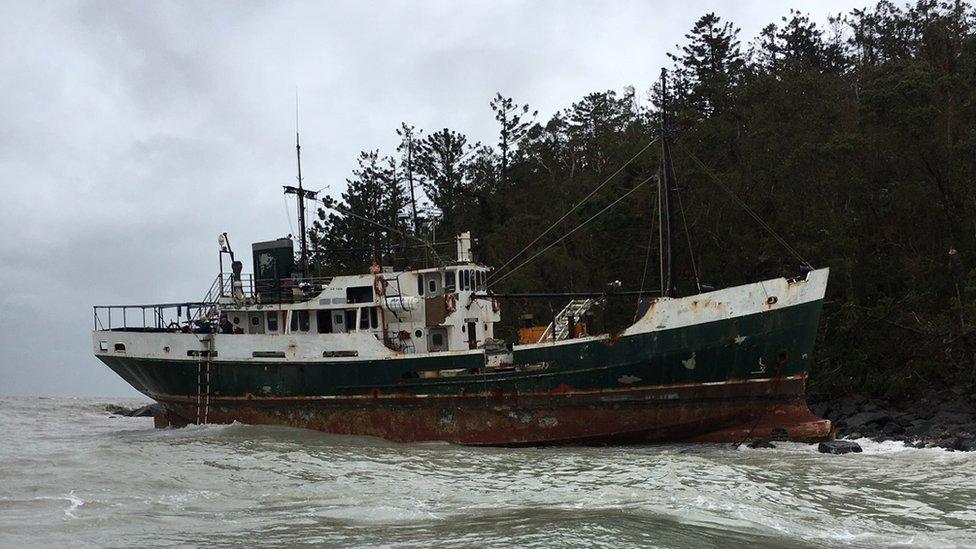
Two men spent a night stranded on this boat, police say
Electricity providers said it was not known when power would be restored to houses.
Mr Turnbull government organisations, banks and insurers to "pull together" to repair damage.
"There will be a lot of damage… particularly to the older buildings, older homes in particular," he said.
"Above all, the important message is to stay safe and follow the advice of the authorities."
In other developments:
Two men spent a night stranded in their boat after it was cast on to rocks
The Insurance Council of Australia declared the cyclone a "catastrophe"
The Great Barrier Reef Marine Park Authority said it feared Debbie might have caused extensive damage to reefs in its path
More than 25,000 people were urged to evacuate their homes ahead of predictions the cyclone would be Queensland's most damaging since 2011.
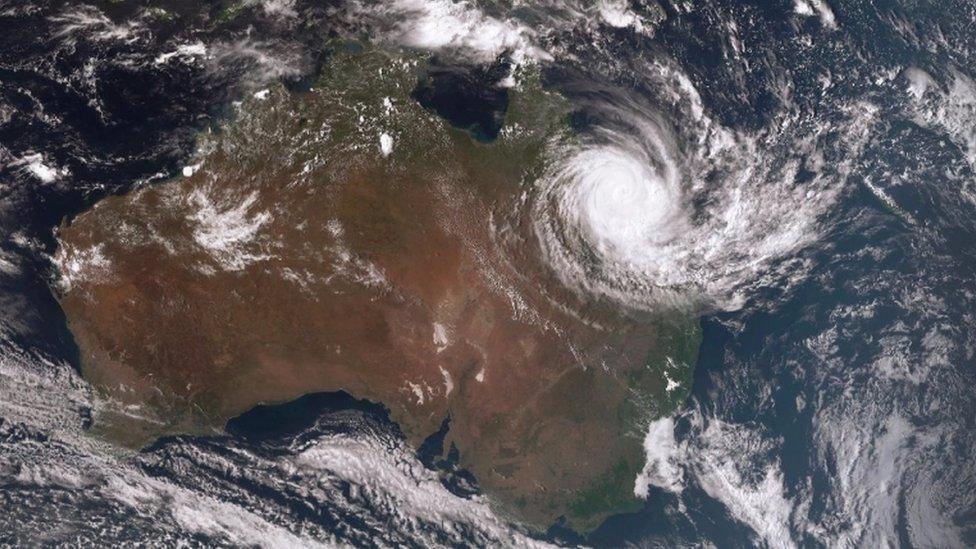
The eye of the storm at 05:30 GMT

Why is it so powerful?
It made landfall at close to its peak intensity, Dr Jeffrey D Kepert, head of the Bureau of Meteorology's, external High Impact Weather Research told the BBC. Crucially, it was also very slow-moving. That "can be more damaging because the duration of strong winds is longer. As structures experience a longer battering, things like metal fatigue set in, leading to more damage. Also, more of the rain falls in the same area rather than being spread out, leading to a greater flood risk".
What is the predicted damage?
Fortunately Debbie missed some key population centres, but the extent of damage remains unclear. Although tourists were hit hard, their hotels were "likely to have higher foundations" and be built more solidly than many ordinary homes near the coast, said Associate Professor David King from James Cook University.
Panic over?
No. The storm will still be around even as it downgrades but, as a silver lining, it could bring some relief to farmers affected by drought. "Hopefully that will bring a bit of rain to the interior," Prof King says.

Are you in the area? Have you been affected by this? If you are willing to do so, share with us by emailing haveyoursay@bbc.co.uk, external.
Please include a contact number if you are willing to speak to a BBC journalist. You can also contact us in the following ways:
WhatsApp: +44 7555 173285
Send pictures/video to yourpics@bbc.co.uk, external
Tweet: @BBC_HaveYourSay, external
Text an SMS or MMS to 61124 (UK) or +44 7624 800 100 (international)
- Published28 March 2017
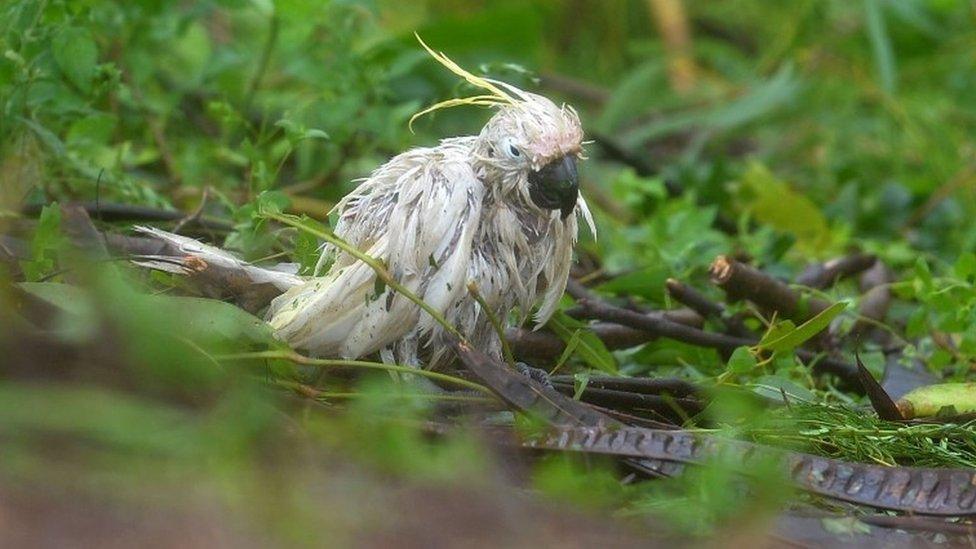
- Published28 March 2017
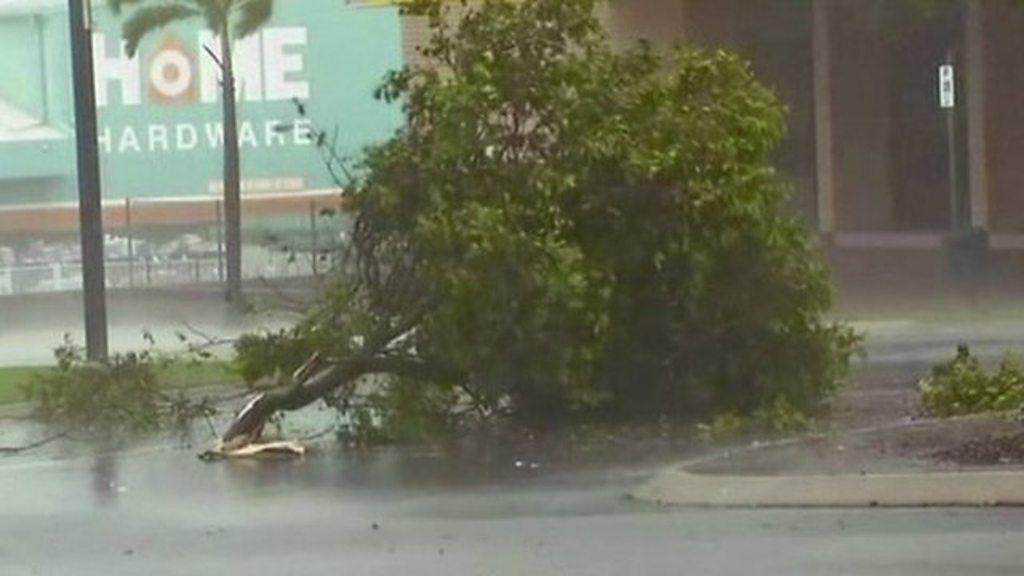
- Published28 March 2017
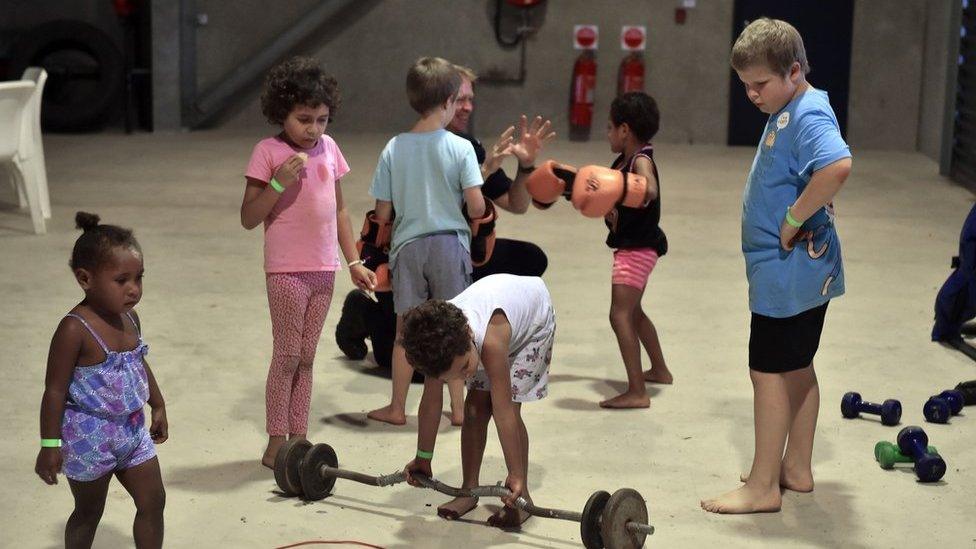
- Published28 March 2017
